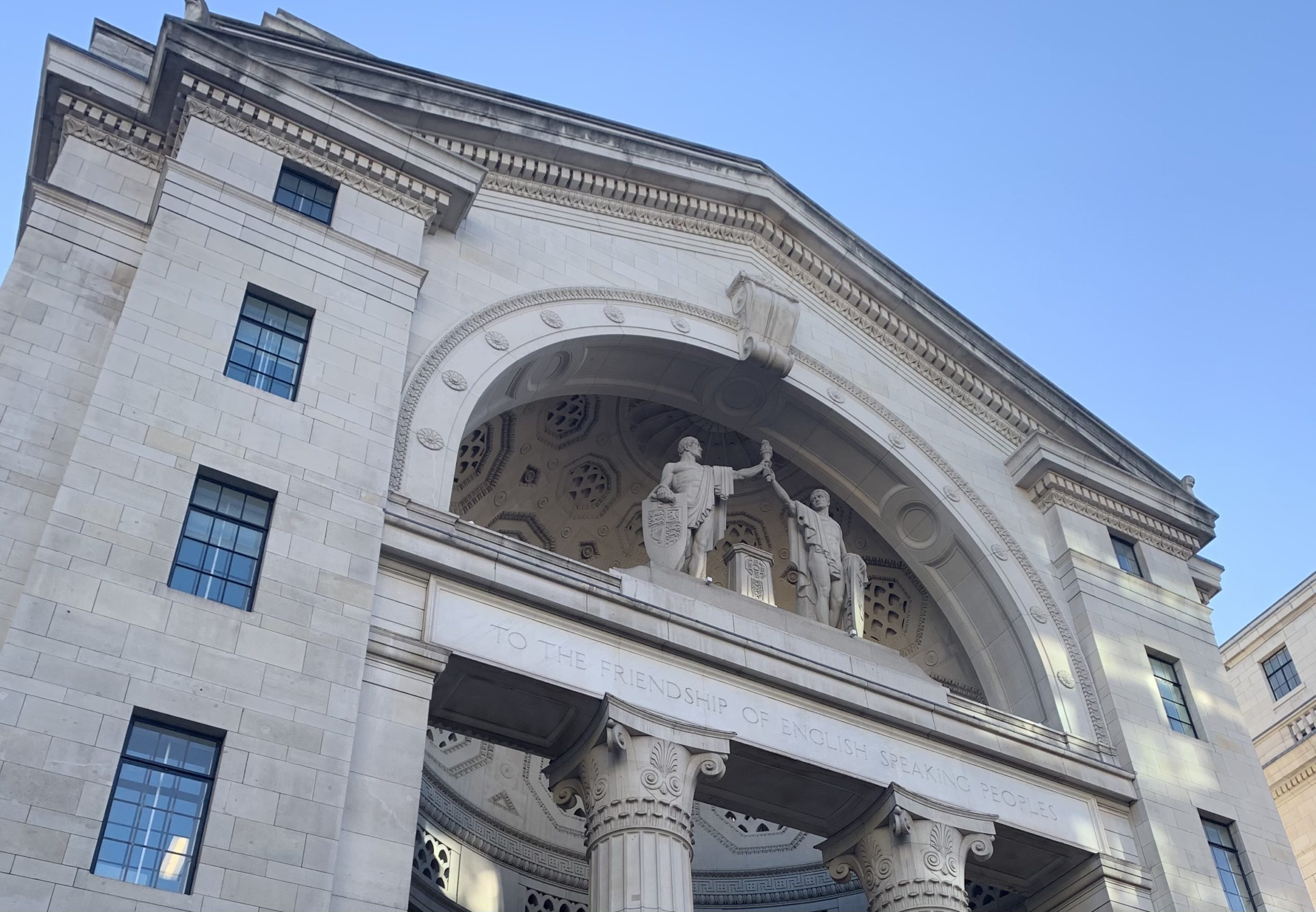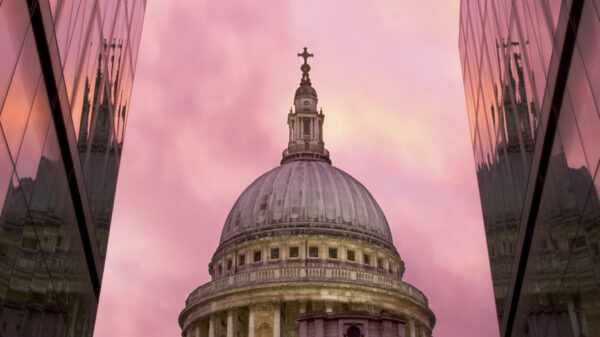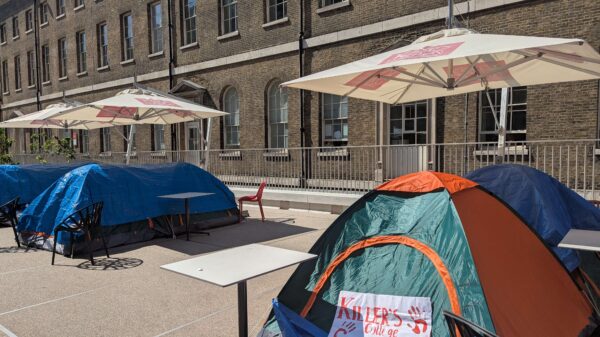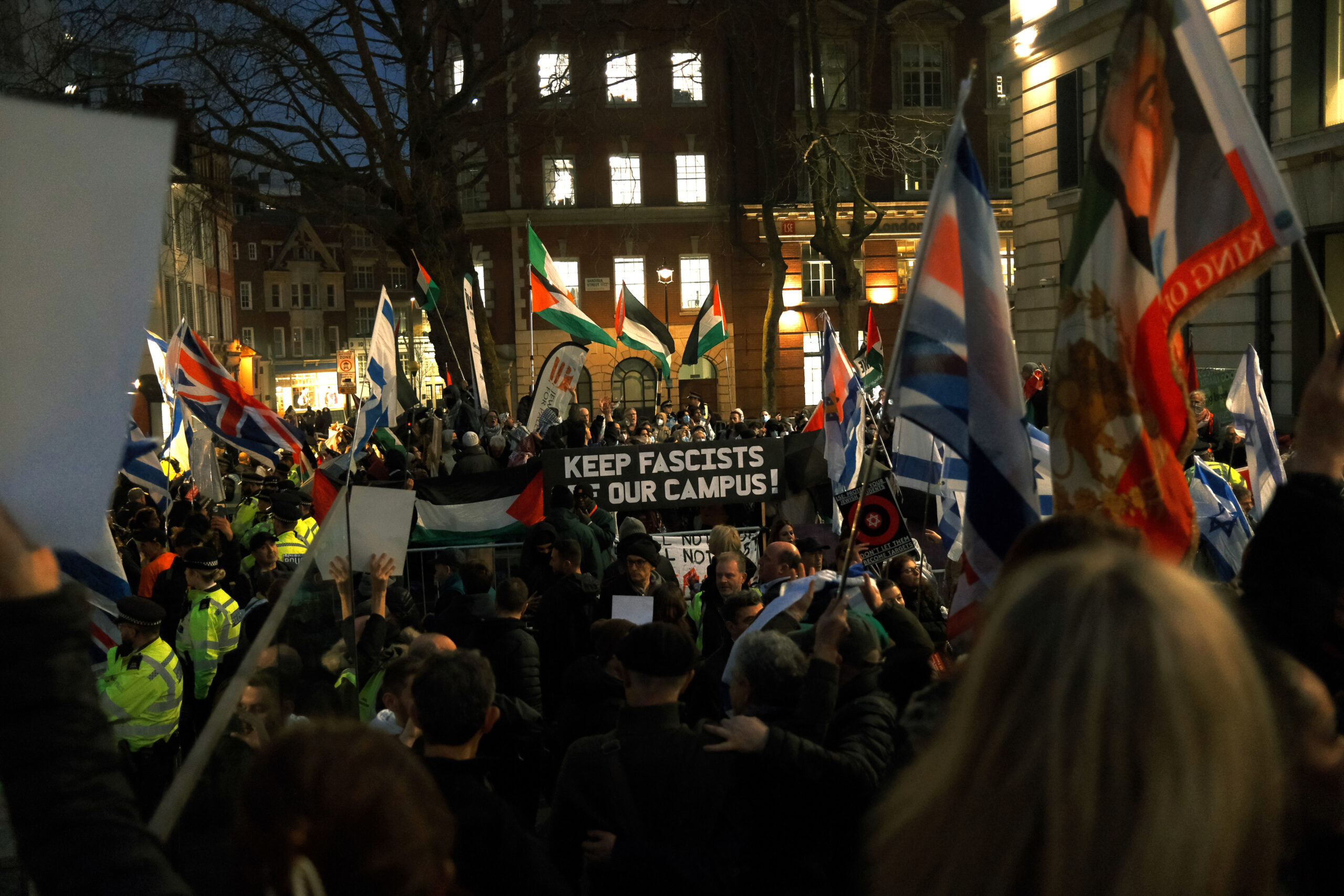Staff writer and CAMERA on Campus fellow Patrick Schnecker argues that university campuses have experienced a growing culture of antisemitism in recent years.
For a long time, the word “Israel” has been frowned upon significantly. Negative connotations are instinctively attributed to it regardless of whether people are discussing its complex political state, or simply talking about its citizens.
In recent years, UK universities’ student-led groups, such as the Palestine Society at SOAS, have used intense anti-Israel rhetoric, which has contributed to normalising the standard across many more academic institutions around the country.
In 2020, the Universities of Oxford, Manchester and Leeds were publicly shamed and condemned by various anti-Israel movements, claiming that their exchange programs with the Hebrew University of Jerusalem were funding and supporting a state whose actions have been allegedly “contrary to international law”. Such movements, striving to stop academic cooperation between British and Israeli universities, only impede students and upcoming professionals from making the most of their academic experiences, not only hindering universities in both countries, but harming students’ academic experience as well.
The Boycott, Divestment and Sanctions (BDS) campaign has had the effect of creating a less-welcoming university campuses for Israeli, Jewish and Zionist students. This movement has been repeatedly accused of antisemitism and “epitomises” Natan Sharansky’s test of the ‘3Ds of new antisemitism’ – a theory identifying the ‘demonization’ of Jewish state, the ‘double standards’ embedded in criticisms of Israel, and the ‘delegitimization’ of the state of Israel. Many Jewish students in the UK have suggested that rising support for the BDS movement has created a hostile environment for them on university campuses.
Over the past couple of years, the student union at University College London (UCL) has been a strong advocate of the BDS campaign. For Israeli, Jewish and Zionist students at UCL, this means that in order to be able to make an impact on campus, let alone be allowed to run for a position in the Student Union, they would not feel able to publicly and accurately represent a nation many see as their own. This is an illiberal and unjustified attempt to minimise the involvement of Israeli and Jewish students within the university body. Furthermore, this may even breach unions’ charity responsibilities. In 2022, City University made the decision to overturn a student union motion in support of BDS, voting to strike it down “on the basis it is inconsistent with charity law”.
Picture this same scenario occurring with any other nation or religion. Without a shadow of a doubt, the entire student population in the United Kingdom, and most likely the world, would be rightly exclaiming their disagreement with the student union’s actions. Mass protests defending the rights and freedoms of the given nationality or religion would spread to every single university campus in the country and the university would be condemned for permitting such discrimination.
Jewish British comedian, David Baddiel, mentions exactly this kind of double standard in his book ‘Jews Don’t Count’. His idea of the “hierarchy of racisms” explores how antisemitism and anti-Jewish hatred often go unnoticed – compared to other forms of racism and discrimination – leaving Jews and Israelis to feel exposed and threatened by society.
Some student unions try to make excuses for why these campaigns are justified and how they are just a form of freedom of expression. Even worse, British student unions (through the National Union of Students) have, in recent years, gone as far as to question Israeli integrity and directly “affiliate with the BDS movement”.
The discriminatory state of the National Union for Students (NUS) was exposed in 2022 with their now ex-president, Shaima Dallali, being found to have violated rules on antisemitism. The public allegations around Dallali prompted over 20 former presidents to call for a wider investigation into antisemitism at the NUS, sparked by a “desire for change” from many Jewish students.
The fears of Israeli students are clearly justified based on recent cases, most notably the cold-blooded comment from an unidentified individual at an NUS event about enjoying “dead baby’s blood”, addressed to a Jewish student holding a soft drink. Supporters of the BDS movement have also targeted the voices of Jewish and Israeli students in the UK, attempting to publicly shame opposition. Some supporting groups have utilised tactics that include isolating these students, disrupting events hosted by or featuring Israeli or Jewish speakers, and organising mass faculty and student protests. These often involve students expressing “deeply offensive” chants, such as “From the river to the sea” and “Intifada until victory”, calling for the end of the Jewish State, which many see as antisemitic.
At the University of Birmingham, following the rise of the BDS movement in the UK, antisemitism became a growing issue for Jewish students. After sharing a picture on social media of one of the many “Hitler was right” posters on campus, one Jewish student was flooded with antisemitic comments and replies. It should be noted that this malevolent series of actions by anti-Israel incendiaries is not directly linked to the BDS organisation’s name. Nonetheless, the influence of the international anti-Israel campaign is clear, contributing to the environment in which an increasing number of students and professors act against the Israeli community on UK campuses.
The decision of some anti-Israel coalitions within British universities to often not condemn such hateful and, frankly, antisemitic behaviour, perfectly demonstrates their invidious nature. Not only do they often ignore or downplay these heinous actions, but in doing so they risk creating an environment in which some people feel justified in antisemitism.
The anti-Israel agenda has been made clear by some British student unions. Promoting ill-disposed boycotts that harm Israeli industries is only one of the adopted methods of the anti-Israel groups on UK university campuses. Not only are they jeopardising the university experiences of Israeli, Jewish and Zionist students, but they are giving future students more and more reason to fear that these university campuses are not safe spaces.
With a new year having just begun, these inequitable student unions and other student bodies should be held accountable by their universities. They must realise the harm they cause to Israeli and Jewish students through crafting an environment in which some Jewish students fear expressing their full identity. But will the 2024 be a year of improved conditions for the Israeli and Jewish student communities, or will the path of repetitive discriminatory sequences survive for another year?
















